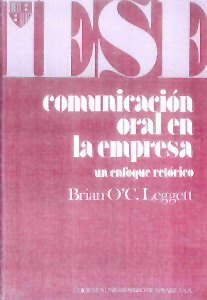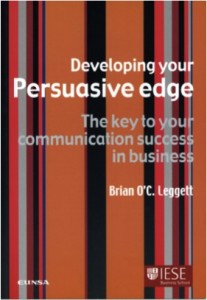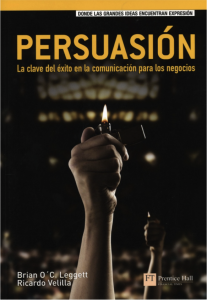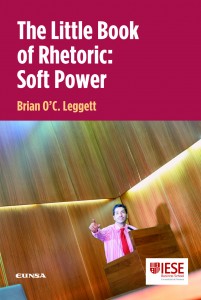Prof Leggett has some 80 odd publications in the IESE network along with other external publications. The principal thread trough all these publications is his aim of bringing the worlds’ of business and the humanities together. These articles range from the use of rhetoric and the dialectic to those touching on each of the six dimensions of ‘Soft Power’ as outlined in his model. Below are some examples and a short description of their contents. Following this thread Prof. Leggett is developing a new series of articles on what business can learn from the classics. The first of this series researches the lessons of Shakespeare’s’ Julius Caesar and their relevance to the world of management.
1. Soft Power: An Overview
This article is a general introduction to the concept of ‘Soft Power’ and draws a distinction with its counterpart, ‘Hard Power’. It outlines the five dimensions of Soft Power: emotional intelligence, vision, rhetoric, non-verbal communication, and personal magnetism.
2. Persuasion: A Rhetorical Approach
Here we discuss the foundations of persuasive communication: Aristotelian and Quintilian rhetoric. The Aristotelian model is composed of three dimensions: Ethos, Pathos and Logos. The Roman approach names five canons of rhetoric: invention, arrangement, style, memory and delivery.
3. The Three Languages of Verbal Communication
This article draws on the results of William Isaac’s research at Ford Motor Company where he monitored the annual Management and Union meetings over a number of years. Isaacs found the three languages were dominant in the negotiations: the languages of meaning, feeling and action.
4. Politeness: A Strategy or the Beginning of Virtue
This article draws greatly on the work of the French philosopher, Andrea Comte-Sponville. Virtue, which is not something that is naturally inherent in us, has to start somewhere, and the practice of politeness is an excellent starting point. On the other hand, many others may see politeness as a social strategy without any reference to the development of virtue.
5. Profile of an Orator: John F. Kennedy
This article is written in a case format and emphasises Kennedy’s poor performance at public speaking at the beginning of his political career, and how he developed this skill through hard work and the acceptance feedback from his father and others on an almost daily basis. Kennedy developed a visionary style which was so unlike the style of his predecessor in the White House or the forensic style of his opponent for the presidency.
6. Profile of the Great Persuader: Ronald Reagan
Reagan emerged from a storytelling background. Ronald Reagan’s father had been a great storyteller and his son inherited his talent. His attractive baritone voice and manner of speaking all found their beginnings in Reagan’s youth as a storyteller. Although he wasn’t a great actor, he did act in some 55 films, and as a result learnt many non-verbal skills. His political awareness started young in his family, but later took on greater proportions when he became president of the actor’s guild.
7. Profile of a Forensic Speaker: Margaret Thatcher
Forensic speakers are usually comfortable with detail and argument. Normally they gather the facts, analyze them, and base their argument on the conclusions of their analysis. However, there are always the dangers that they lose respect for others and stop listening if they feel that others are not doing likewise. They use their credibility to oust those who dare to suggest a different path. Is this a reflection of Mrs Thatcher’s forensic style?
8. Profile of a Negotiator: Lyndon Baines Johnson
Lyndon Johnson, according to the historian Robert Dallek, was probably one of the most notable negotiators ever to enter the White House. Negotiators need to be practical and pragmatic. But was his extreme pragmatic style the cause of his failure to form a long term vision for the country in a time of emergency? America cried out for leadership, as the problem of Vietnam nearly tore it asunder. LBJ, who had guided more legislation through Congress than any other Senate Majority leader, was unable to articulate this much needed vision.
9. Leadership through Speeches: A Visionary Model
Painting a picture of what could be is the essence of visionary rhetoric. It is partly utopian and is built on the imagination. It is entirely dependent on the credibility of the speaker. Aristotle wrote in his Rhetoric that the character of the speaker is the cause of persuasion, for we trust people of probity more, and more quickly, about things in general and, more especially, where exact knowledge does not exist and opinions are divided. Visionary rhetoric depends on ethos.
10. Dealing with Uncertainty
If matters were certain, then persuasion would not be necessary as matters would stand by themselves. However, in most business situations uncertainty exists and opinions can vary. This is why persuasion is important for business. This article draws greatly on the writing of Stephen Toulmin who offers us a solution when he tells us we must become practical thinkers and reject the strict rationalistic approach in unpredictable areas and see matters through the eyes of reasonableness. Great uncertainty needs a visionary leader, and with credibility (ethos), reasonableness can then be effectively communicated.
11. Non-verbal Communication
Our audience’s interpretation of our non/verbal communication is not only very important, but also the largest element of the communication process. We particularly deal with tonality and body language in this note and externals (such as dress, setting …) to a lesser extent. How can we explain that some of the people who most influenced the world were, in fact, not great orators and yet they their influence appears influential throughout the ages? The answer lies in their tremendous command of non-verbal communication.
12. Management and the Classics: selective listening and the Julius Caesar Saga
What can a manager gain from reading Shakespeare’s Julius Caesar? One question that immediately springs to mind is does unfettered ambition naturally result in a selective listening process? Did arrogance eventually lead to his downfall as he was unwilling to listen? Then we turn to the two famous speeches by Brutus and Mark Antony. Brutus was a forensic speaker while Mark Antony was a persuasive one. What do forensic speakers have to learn from Brutus’ speech? How did Mark Antony use persuasive tactics to move his audience?






this blog is consisted of people i admire most especially john f kennedy, thanks for sharing this post! more success!
Interesting blog post and great sharing. Some things in here I have never thought about before, I want to take this moment to say that I really like this blog. It has been an excellent resource of knowledge for me. Thank you so much!